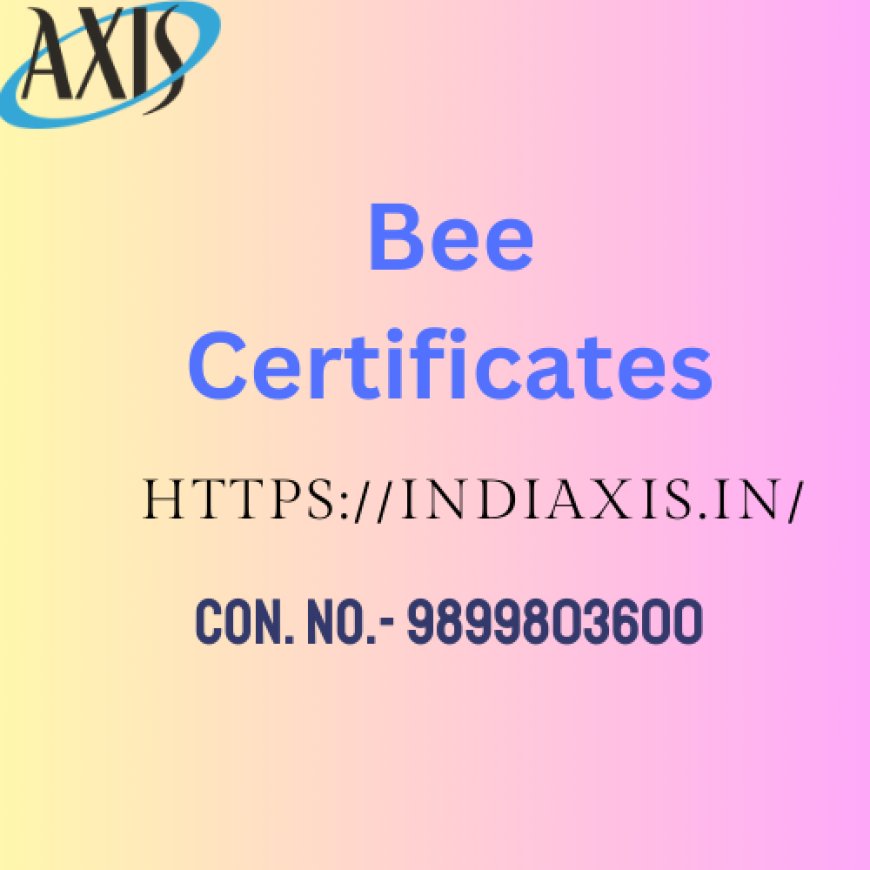Bee Certificates
Get your Bee Certificates easily and quickly. Ensure your knowledge and certification for professional bee-related activities and services.

Bee Certificates play a crucial role in the apiculture industry, providing beekeepers with the necessary documentation to certify the health, safety, and authenticity of their beekeeping operations. These certificates serve as formal recognition from regulatory authorities, ensuring that beekeeping practices adhere to industry standards. Whether you are an aspiring beekeeper, a commercial honey producer, or involved in the trade of bee-related products, understanding the importance and process of obtaining Bee Certificates is essential.
What Are Bee Certificates?
Bee Certificates are official documents issued by relevant authorities that confirm compliance with beekeeping regulations. They serve various purposes, such as verifying the health of bee colonies, ensuring sustainable beekeeping practices, and facilitating the export and sale of bee products. These certificates help prevent the spread of diseases among bee populations and ensure the quality of honey and other bee-derived products.
Types of Bee Certificates
There are several types of Bee Certificates, each serving different aspects of the beekeeping industry. The most common types include:
-
Health Certification – Ensures that bee colonies are free from diseases and pests such as American foulbrood, European foulbrood, and varroa mites.
-
Organic Certification – Confirms that beekeeping practices meet organic farming standards, including the use of natural forage areas and prohibition of synthetic chemicals.
-
Export Certification – Required for the international trade of bee products, ensuring compliance with the importing country’s regulations.
-
Pesticide-Free Certification – Certifies that the honey and other products have not been exposed to harmful pesticides.
-
Pollination Services Certification – Recognizes beekeepers who provide pollination services to farmers, ensuring that their bees are healthy and efficient pollinators.
-
Apiary Registration Certificate – A legal requirement in many regions that mandates beekeepers to register their colonies with the appropriate agricultural department.
Importance of Bee Certificates
Bee Certificates are vital for maintaining healthy bee populations, protecting consumers, and supporting sustainable beekeeping practices. The key benefits include:
-
Disease Control – Helps in the early detection and management of bee diseases, preventing large-scale colony losses.
-
Market Access – Many retailers and exporters require Bee Certificates to ensure product quality and compliance with industry standards.
-
Consumer Trust – Certification provides assurance to consumers that the honey and other bee products they purchase are authentic and free from contaminants.
-
Environmental Protection – Certified beekeepers adhere to eco-friendly practices, promoting biodiversity and sustainability.
-
Economic Opportunities – Beekeepers with proper certification can access better markets, higher prices, and government support programs.
How to Obtain Bee Certificates
The process of obtaining Bee Certificates varies by country and the type of certification required. However, the general steps include:
-
Registering as a Beekeeper – Most countries require beekeepers to register their apiaries with local agricultural or environmental authorities.
-
Inspection of Bee Colonies – Authorities conduct inspections to check for disease, pest infestations, and compliance with best practices.
-
Submitting an Application – Beekeepers must complete the necessary forms and provide required documentation, such as lab test results and operational records.
-
Compliance with Standards – The beekeeper must follow regulations related to hive maintenance, pesticide use, and honey extraction methods.
-
Certification Approval – Once all criteria are met, the relevant body issues the Bee Certificate, which is usually valid for a specific period.
-
Renewal and Monitoring – Regular inspections and renewals are required to maintain certification status.
Challenges in Obtaining Bee Certificates
While Bee Certificates provide numerous benefits, obtaining them can be challenging due to:
-
Stringent Regulations – Compliance with various health, safety, and environmental standards can be complex and time-consuming.
-
Cost of Certification – Fees for inspections, laboratory tests, and application processing can be high, especially for small-scale beekeepers.
-
Limited Awareness – Many beekeepers, especially in rural areas, may not be aware of the certification requirements and benefits.
-
Bureaucratic Delays – Government agencies may take time to process applications and conduct necessary inspections.
How to Overcome These Challenges
To navigate these challenges, beekeepers can take the following steps:
-
Education and Training – Attending workshops and training sessions on certification requirements can help beekeepers understand the process.
-
Joining Beekeeping Associations – Membership in beekeeping organizations can provide support, resources, and guidance on obtaining Bee Certificates.
-
Seeking Government Assistance – Some governments offer subsidies or grants to help beekeepers cover certification costs.
-
Keeping Accurate Records – Maintaining detailed records of hive management, treatments, and honey production can streamline the certification process.
The Future of Bee Certificates
With increasing awareness of the importance of bee conservation and sustainable beekeeping, the demand for Bee Certificates is expected to grow. Governments and international organizations are working towards harmonizing certification standards to facilitate global trade and protect pollinator populations. Digital certification systems are also emerging, making the process more efficient and accessible.
Conclusion
Bee Certificates are indispensable for ensuring the health of bee populations, maintaining product quality, and supporting ethical beekeeping practices. While obtaining certification can be challenging, the benefits far outweigh the difficulties. By understanding the requirements, seeking support, and adopting best practices, beekeepers can enhance their credibility, access better markets, and contribute to the sustainability of the apiculture industry.
What's Your Reaction?






























